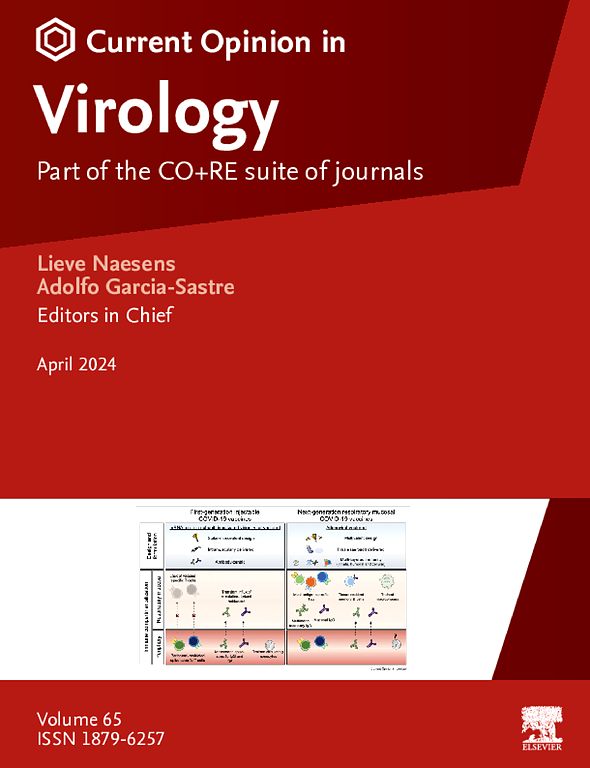爱泼斯坦-巴尔病毒裂解复制与癌症
IF 5.1
2区 医学
Q1 VIROLOGY
引用次数: 0
摘要
流行病学研究提供了强有力的证据表明,eb病毒(EBV)裂解复制与癌症的发展有关。在一些肿瘤中裂解复制失败的证据和在动物模型中无法裂解复制的重组病毒感染的证据加强了这一观点。此外,多种裂解蛋白已被证明可诱导遗传不稳定,这是一种典型的癌前状态。特别是,裂解蛋白失调DNA损伤反应,干扰细胞周期进程,并诱导结构遗传异常的发展。然而,到目前为止,还没有来自体内或体外研究的直接证据表明,裂解复制本身可以诱导癌症。在这里,我们批判性地回顾了EBV裂解复制有助于癌症发展的现有证据,并提出了未来的研究方向。本文章由计算机程序翻译,如有差异,请以英文原文为准。
Epstein–Barr virus lytic replication and cancer
Epidemiological studies have provided strong evidence that Epstein–Barr virus (EBV) lytic replication is linked to cancer development. Evidence of abortive lytic replication in some tumors and infections with recombinant viruses incapable of lytic replication in animal models have reinforced this view. Furthermore, multiple lytic proteins have been shown to induce genetic instability, a well-characterized precancerous state. In particular, lytic proteins dysregulated the DNA damage response, interfered with cell cycle progression, and induced the development of structural genetic abnormalities. However, there is so far no direct evidence from in vivo or in vitro studies that lytic replication alone can induce cancer. Here, we critically review the currently available evidence that EBV lytic replication contributes to cancer development and suggest future research directions.
求助全文
通过发布文献求助,成功后即可免费获取论文全文。
去求助
来源期刊

Current opinion in virology
VIROLOGY-
CiteScore
11.80
自引率
5.10%
发文量
76
审稿时长
83 days
期刊介绍:
Current Opinion in Virology (COVIRO) is a systematic review journal that aims to provide specialists with a unique and educational platform to keep up to date with the expanding volume of information published in the field of virology. It publishes 6 issues per year covering the following 11 sections, each of which is reviewed once a year: Emerging viruses: interspecies transmission; Viral immunology; Viral pathogenesis; Preventive and therapeutic vaccines; Antiviral strategies; Virus structure and expression; Animal models for viral diseases; Engineering for viral resistance; Viruses and cancer; Virus vector interactions. There is also a section that changes every year to reflect hot topics in the field.
 求助内容:
求助内容: 应助结果提醒方式:
应助结果提醒方式:


